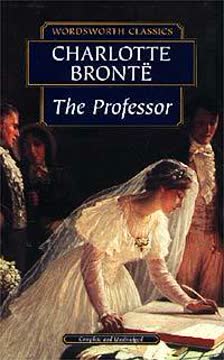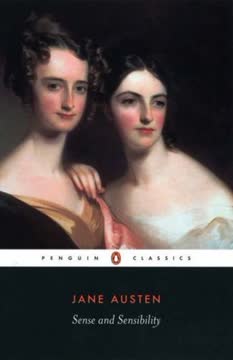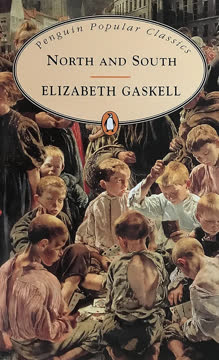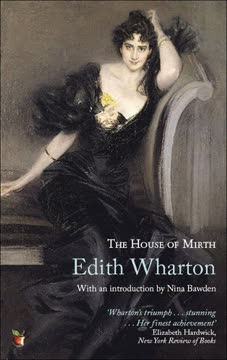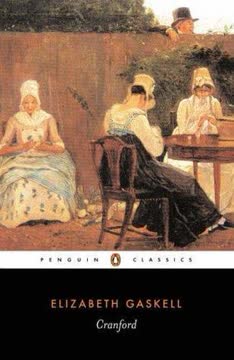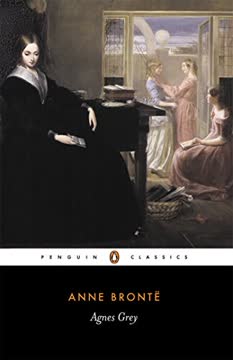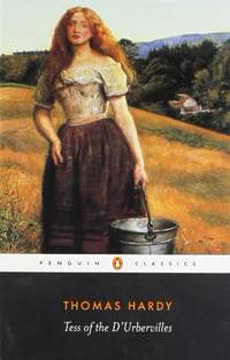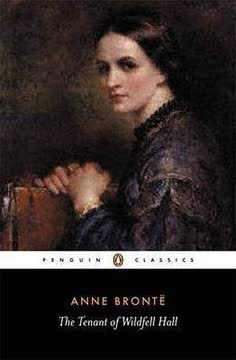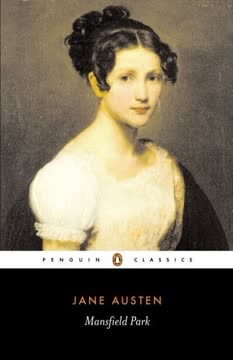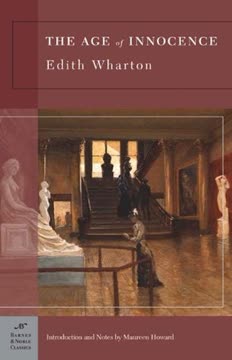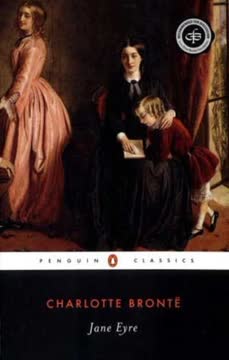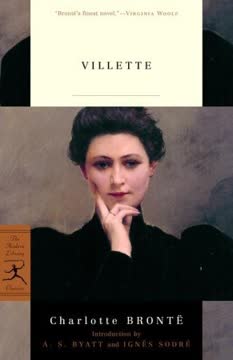Plot Summary
Orphaned Ambitions Awaken
William Crimsworth, orphaned and raised by cold, aristocratic uncles, is offered a comfortable living in the Church and a marriage to a cousin. Disgusted by their condescension and determined to earn his own way, William refuses both, choosing instead to follow in his late father's footsteps as a tradesman. This decision sets him on a path of hardship, as he seeks to define himself through honest labor rather than inherited privilege, and foreshadows the struggles and self-determination that will shape his life.
Family Ties Severed
Arriving in the industrial North, William seeks work with his estranged brother Edward, now a successful mill owner. Instead of finding familial support, he encounters coldness, rivalry, and even cruelty. Edward, threatened by William's intelligence and independence, treats him as a subordinate, not a sibling. The toxic environment at Crimsworth Hall and the mill, compounded by Edward's proud and jealous nature, forces William to confront the reality that blood ties offer him no refuge, and that he must rely on his own resilience.
The Mill's Cruel Shadow
William's life as a clerk in his brother's mill is marked by relentless toil, humiliation, and emotional isolation. Edward's tyranny is absolute, and William's efforts to maintain dignity are met with suspicion and sabotage. The only warmth he finds is in the memory of his mother and fleeting glimpses of beauty in the harsh industrial landscape. The mill becomes a symbol of the soul-crushing effects of unchecked power and class division, pushing William toward a breaking point.
Escape to Belgium
After a final confrontation with Edward, William resigns, severing his last familial tie. With little money and no prospects, he follows the advice of the eccentric but insightful Hunsden and travels to Belgium. There, he hopes to find honest work and a new beginning, free from the oppressive class structures and personal animosities of England. The journey is both literal and symbolic—a crossing from darkness into the possibility of self-made light.
A Teacher's Humble Beginnings
In Brussels, William secures a position as a teacher of English and Latin at a boys' school run by the gentle but shrewd Monsieur Pelet. Though the work is demanding and the pay modest, William finds satisfaction in honest labor and the respect it brings. He is introduced to the complexities of Belgian society, the challenges of cross-cultural communication, and the subtle power dynamics of the classroom. Teaching becomes both his livelihood and a means of self-discovery.
The Directress's Designs
William is soon drawn into the orbit of Mademoiselle Zoraide Reuter, the clever and calculating directress of a girls' school. She offers him additional work and, beneath a mask of propriety, seeks to manipulate him for her own ends—both professional and personal. William, wary but intrigued, navigates her advances and the social labyrinth of the pensionnat, where appearances often mask ambition and self-interest. The chapter explores the dangers of misplaced trust and the complexities of female agency.
The Lace-Mender's Secret
Among the many pupils at the girls' school, William notices Frances Henri, a quiet, intelligent Anglo-Swiss teacher of needlework. Despite her lowly position and poverty, Frances possesses a rare combination of perseverance, integrity, and intellectual curiosity. Her struggle to educate herself and maintain dignity in the face of adversity resonates with William, and a bond of mutual respect and affection begins to form, though both are cautious and reserved.
Lessons in Love and Language
As William tutors Frances in English, their relationship deepens. Through shared lessons, they discover a meeting of minds and hearts, each finding in the other a kindred spirit. Their love grows quietly, rooted in mutual admiration and the shared experience of hardship. The school, with its rigid hierarchies and petty intrigues, becomes a backdrop for their private world of learning, hope, and emotional awakening.
Betrayal and New Resolve
Mademoiselle Reuter, jealous of Frances and threatened by William's independence, orchestrates Frances's dismissal and blocks their communication. William, devastated by the loss and the directress's duplicity, is forced to confront the precariousness of his position and the vulnerability of his happiness. Yet, rather than succumb to despair, he resolves to find Frances, reclaim his agency, and build a life on his own terms.
Poverty and Perseverance
Separated and struggling, both William and Frances face poverty and uncertainty. William's search for work is met with repeated disappointment, while Frances toils as a lace-mender, barely scraping by. Their letters cross paths, offering brief solace but no solution. The city of Brussels, with its indifference and social barriers, tests their endurance and faith in each other. Yet, both refuse to compromise their principles or abandon hope.
Reunion Among the Graves
A chance encounter in a cemetery reunites William and Frances. Grieving the death of her aunt and facing an uncertain future, Frances finds in William not only a lover but a partner in adversity. Their reunion is marked by honesty, vulnerability, and a renewed commitment to face life's challenges together. The graveyard setting underscores the themes of mortality, resilience, and the redemptive power of love.
Building a Life Together
With modest means and mutual support, William and Frances marry and establish a small but thriving school. Their partnership is one of equals, each contributing to their shared success through hard work, respect, and affection. The school becomes a symbol of their triumph over adversity and their ability to create meaning and happiness through perseverance and cooperation.
The School of Hope
The Crimsworths' school flourishes, attracting students from diverse backgrounds and earning a reputation for excellence. Frances, once a marginalized lace-mender, becomes a respected educator and role model. Their work is not only a means of survival but a mission to empower others through knowledge and self-discipline. The school stands as a testament to the transformative power of education and the dignity of honest labor.
Trials, Triumphs, and Farewells
As the years pass, William and Frances face new challenges—professional rivalries, the demands of parenthood, and the ever-present threat of financial instability. Yet, their bond endures, strengthened by shared values and mutual support. The return of Hunsden, now a prosperous and eccentric friend, brings both comic relief and a reminder of the journey's beginning. The couple's resilience and adaptability are tested, but ultimately affirmed.
The Fruits of Perseverance
Through years of diligence and sacrifice, the Crimsworths achieve financial independence and social respectability. Their success is not marked by wealth or status, but by the satisfaction of a life built on integrity, love, and self-reliance. The narrative reflects on the meaning of happiness, the value of work, and the quiet heroism of ordinary lives.
Hunsden's Return
Hunsden's reappearance prompts reflection on the past and the changes wrought by time. His friendship with William, once marked by rivalry and sarcasm, matures into mutual respect. The contrast between Hunsden's restless cosmopolitanism and the Crimsworths' settled domesticity highlights the diverse paths to fulfillment and the enduring importance of personal connection.
A Home of Their Own
The story closes with William and Frances enjoying the fruits of their labor in a modest but happy home. Their son, Victor, embodies the hope and potential of the next generation. The couple's journey—from orphaned ambition and grinding poverty to love, partnership, and self-made security—serves as a quiet affirmation of the values of perseverance, honesty, and mutual respect.
Characters
William Crimsworth
William is the novel's narrator and protagonist, an orphan raised by cold, aristocratic relatives who rejects privilege in favor of self-earned independence. His journey is marked by a fierce commitment to integrity, a refusal to accept unearned advantage, and a deep need for meaningful work and connection. Psychologically, William is both proud and vulnerable, capable of enduring hardship but also prone to loneliness and self-doubt. His development is shaped by adversity, the discovery of love, and the gradual realization that happiness is found not in status but in honest labor and partnership.
Frances Evans Henri
Frances is an Anglo-Swiss orphan, a teacher of needlework who rises from poverty through perseverance, intellect, and self-discipline. Her relationship with William is one of equals, marked by mutual respect, shared hardship, and deep affection. Psychologically, Frances is both shy and strong-willed, capable of great tenderness but also fierce independence. Her journey from marginalized lace-mender to respected educator and wife is a testament to the power of self-reliance and the redemptive potential of love.
Edward Crimsworth
Edward is William's elder brother and early antagonist, a successful mill owner whose insecurity and envy drive him to cruelty. His relationship with William is marked by rivalry, resentment, and a refusal to acknowledge kinship or merit. Psychologically, Edward is a study in the corrosive effects of pride and the emptiness of power untempered by empathy. His eventual downfall and irrelevance underscore the novel's critique of class and privilege.
Mademoiselle Zoraide Reuter
Zoraide is the directress of the girls' school in Brussels, a woman of intelligence and charm who uses her position to advance her own interests. Her relationship with William is fraught with tension, as she seeks to control and possess him, only to be thwarted by his integrity and his love for Frances. Psychologically, Zoraide is both calculating and vulnerable, capable of genuine feeling but ultimately undone by her inability to relinquish control or act selflessly.
Monsieur Pelet
Pelet is the director of the boys' school where William first teaches in Belgium. Outwardly affable and supportive, he is revealed to be motivated by self-interest and capable of betrayal. His relationship with William is initially one of mentorship, but is later marked by rivalry and duplicity. Psychologically, Pelet embodies the dangers of charm unaccompanied by principle.
Hunsden Yorke Hunsden
Hunsden is William's friend and foil, an eccentric Englishman who delights in challenging social conventions and exposing hypocrisy. His relationship with William is complex, marked by sarcasm, rivalry, and ultimately respect. Psychologically, Hunsden is both restless and loyal, a man who values independence above all but is capable of genuine friendship and insight. He serves as a catalyst for William's self-discovery and a reminder of the diversity of paths to fulfillment.
Madame Pelet
Madame Pelet is the mother of Monsieur Pelet, a figure of comic relief and practical wisdom. Her role is minor but memorable, providing insight into the domestic and social dynamics of the school.
Sylvie
Sylvie is a model pupil at the girls' school, marked by obedience and self-denial. Destined for the convent, she represents the dangers of excessive submission and the stifling effects of religious and social conformity.
Eulalie, Hortense, and Caroline
These three pupils at the girls' school embody the competitive, appearance-driven values of their class and gender. Their interactions with William and Frances highlight the novel's critique of superficiality and the challenges faced by those who refuse to play by society's rules.
Victor Crimsworth
Victor is the son of William and Frances, a child marked by both vulnerability and promise. His upbringing and development serve as a symbol of the couple's hard-won happiness and the potential for renewal and progress.
Plot Devices
First-Person Retrospective Narrative
The novel is told entirely from William's perspective, blending immediacy with reflection. This structure allows for deep psychological insight, subjective interpretation of events, and a sense of intimacy with the protagonist's struggles and growth. The narrative's confessional tone invites the reader to share in William's doubts, hopes, and triumphs, while also highlighting the limitations and biases of his viewpoint.
Social Realism and Anti-Romanticism
Brontë's stated aim was to depict a hero who earns his way through life, without sudden windfalls or improbable rescues. The plot is grounded in the realities of work, poverty, and social constraint, with no miraculous reversals or idealized love interests. This realism is both a narrative device and a thematic statement, challenging the conventions of Victorian fiction and emphasizing the dignity of ordinary lives.
Foreshadowing and Irony
From the outset, the narrative foreshadows William's struggles and the disappointments that await him. The irony of his rejection of privilege, only to find himself at the mercy of new forms of oppression, underscores the novel's critique of social structures and the unpredictability of fate.
Symbolism of Work and Education
Work—whether in the mill, the classroom, or the home—is both a source of suffering and a means of self-realization. Education, for both William and Frances, is depicted as a tool of empowerment, a way to transcend social barriers and claim agency. The school they build together becomes a symbol of hope, progress, and the possibility of a better future.
Psychological Realism and Character Development
The novel's focus on the inner lives of its characters—especially William and Frances—distinguishes it from more plot-driven works. Their struggles with pride, fear, love, and self-doubt are rendered with nuance and empathy, inviting the reader to reflect on the complexities of human motivation and the slow, often painful process of personal growth.
Analysis
The Professor is Charlotte Brontë's meditation on the value of self-reliance, the dignity of honest labor, and the redemptive power of love grounded in mutual respect. Rejecting the melodrama and fantasy of much Victorian fiction, Brontë offers a narrative of struggle, perseverance, and quiet triumph, in which happiness is not bestowed by fate but earned through effort and integrity. The novel critiques the rigid class structures and gender roles of its time, exposing the corrosive effects of pride, privilege, and ambition untempered by empathy. At its heart, The Professor is a story of two outsiders—William and Frances—who, through resilience and partnership, carve out a space of freedom and fulfillment in a world that offers them little. Its lessons are as relevant today as in Brontë's time: that true contentment is found not in wealth or status, but in honest work, self-knowledge, and the courage to love and be loved as equals.
Last updated:
FAQ
Synopsis & Basic Details
What is The Professor about?
- A Young Man's Quest: The Professor follows William Crimsworth, an orphaned Englishman who rejects his aristocratic uncles' patronage and a life of unearned privilege, choosing instead to forge his own path through honest labor. His journey begins in the harsh industrial landscape of his brother Edward's mill in England.
- Escape to Self-Discovery: Driven by his brother's cruelty and a desire for independence, William flees to Brussels, Belgium. There, he finds work as a professor (teacher) in a boys' school, navigating a new culture and the subtle manipulations of its director, M. Pelet, and the ambitious directress of a neighboring girls' school, Mlle. Zoraide Reuter.
- Love Forged in Adversity: Amidst the social intrigues and professional challenges, William discovers a kindred spirit in Frances Evans Henri, a quiet, intelligent Anglo-Swiss teacher of humble origins. Their shared values of integrity, perseverance, and intellectual curiosity lead to a deep, unconventional love that ultimately helps them build a life of mutual respect and hard-won contentment.
Why should I read The Professor?
- Insight into Brontë's Craft: Readers should delve into The Professor to witness Charlotte Brontë's foundational literary style and thematic concerns before Jane Eyre or Shirley. It offers a raw, unvarnished look at her anti-romantic realism, focusing on the psychological realism and character development of ordinary characters rather than grand melodrama.
- Critique of Social Hypocrisy: The novel provides a sharp, often cynical, critique of Victorian class structures, gender expectations, and the pervasive hypocrisy of social interactions. William's journey exposes the emptiness of inherited status and the moral compromises made in pursuit of wealth and social standing, making it a compelling The Professor analysis of societal norms.
- Unconventional Love Story: For those seeking a love story rooted in intellectual and moral compatibility rather than superficial charm, William and Frances's relationship is deeply rewarding. It champions the quiet strength of partnership, perseverance, and mutual respect, offering a refreshing alternative to more idealized romantic narratives.
What is the background of The Professor?
- Authorial Intent & Realism: Charlotte Brontë wrote The Professor as a deliberate rejection of the prevailing romantic conventions of her time, as detailed in her preface. She aimed for a "plain and homely" narrative, where her hero "should never get a shilling he had not earned," reflecting a commitment to social realism and anti-romanticism and the dignity of labor. This Charlotte Brontë writing style choice was initially met with publisher resistance.
- Belgian Experience Influence: The novel draws heavily on Brontë's own experiences teaching in Brussels in the 1840s. Her observations of Belgian schools, the cultural differences, and the personalities of her employers and fellow teachers (like the Hégers, who inspired Pelet and Zoraide) lend an authentic, almost documentary feel to William's foreign sojourn.
- Critique of Industrialism & Aristocracy: Set against the backdrop of England's industrial North and the European continent, the novel implicitly critiques both the dehumanizing aspects of early industrial capitalism (Edward's mill) and the moral decay of a complacent aristocracy (William's uncles). It explores themes of social mobility and the individual's struggle against systemic oppression.
What are the most memorable quotes in The Professor?
- "He that is low need fear no fall.": This quote, from the preface, encapsulates William Crimsworth's anti-romantic philosophy and the novel's core theme of embracing humility and self-reliance. It foreshadows his journey of enduring hardship without the expectation of sudden elevation, defining his stoic approach to life's challenges.
- "Antipathy is the only word which can express the feeling Edward Crimsworth had for me...": This line vividly captures the intense, irrational animosity Edward feels towards William, highlighting the corrosive nature of envy and sibling rivalry. It underscores William's profound isolation and the psychological torment he endures in his brother's employ, a key aspect of Edward Crimsworth's motivations.
- "Hope smiles on Effort!": Uttered by a voice in William's heart during a dream, this quote becomes a guiding mantra for his and Frances's shared life. It symbolizes the novel's ultimate message that perseverance, hard work, and a positive outlook, even in the face of adversity, are rewarded, offering a powerful thematic statement on themes in The Professor.
What writing style, narrative choices, and literary techniques does Charlotte Brontë use?
- First-Person Retrospective Narrative & Subjectivity: Brontë employs a first-person retrospective narrative, allowing William Crimsworth to recount his experiences with a blend of immediate observation and mature reflection. This choice provides deep psychological insight into William's internal world, his biases, and his evolving understanding of himself and others, shaping the reader's perception of events.
- Social Realism and Anti-Romanticism & Didacticism: The novel deliberately eschews the sensationalism and idealized romance common in Victorian fiction. Brontë's style is "plain and homely," focusing on the mundane realities of work, social struggle, and the slow, hard-won path to contentment. This often gives the narrative a didactic tone, emphasizing moral lessons about self-reliance, integrity, and perseverance.
- Detailed Observation & Psychological Nuance: Brontë excels at meticulous observation, particularly of character physiognomy and subtle social dynamics. William's descriptions of faces, gestures, and dialogue subtext reveal the hidden motivations and psychological complexities of those around him, even as he struggles with his own emotional landscape. The use of French dialogue also adds a layer of cultural realism and character specificity.
Hidden Details & Subtle Connections
What are some minor details that add significant meaning in The Professor?
- The Mother's Portrait as a Moral Compass: William's mother's portrait, the only heirloom saved from his father's bankruptcy, serves as a constant, silent presence and a moral touchstone. He notes its "thoughtful, yet gentle expression" and "serious grey eye," contrasting it with Mrs. Crimsworth's superficiality and later, Zoraide's craftiness. This detail subtly guides William's aesthetic and moral preferences, foreshadowing his eventual attraction to Frances's inner qualities.
- Weather and Setting as Emotional Barometers: Brontë frequently uses weather and environmental descriptions to mirror William's internal state. The "foggy evening" and "smoky atmosphere of Bigben Close" reflect his initial despair in England, while the "mild February morning" and "sparkling clearness of the air" in Brussels mark his renewed hope. The "chill frost-mist" rising from the river after his dismissal from Edward's mill underscores his desolation, making the landscape a symbolic extension of his feelings.
- The Boarded Window and the "Garden" of Potential: William's initial frustration with the boarded-up window in his Brussels room, which he imagines hides a "mysterious garden" and "angels," is a subtle symbol of his yearning for deeper connection and a more fulfilling life. When the boards are removed, and he later shares the garden with Frances, it signifies the opening of his emotional world and the realization of his romantic and intellectual aspirations.
What are some subtle foreshadowing and callbacks in The Professor?
- Hunsden's Early Prophecies: Hunsden's blunt, cynical remarks about William's unsuitability for trade ("You'll make nothing by trade") and his aristocratic nature, though initially dismissed, subtly foreshadow William's eventual departure from commerce and his inherent disdain for its purely mercenary aspects. His later, more accurate assessment of Zoraide's character also highlights his perceptive, if abrasive, insight.
- The "Promethean Spark" Motif: William's early declaration that "white necks, carmine lips and cheeks... do not suffice for me without that Promethean spark which will live after the roses and lilies are faded" (Chapter 1) is a crucial piece of foreshadowing. It sets the standard for his ideal partner, explaining his disinterest in superficial beauty and his eventual deep connection with Frances, whose intellectual and moral "spark" he explicitly recognizes.
- The "Hill of Difficulty" and Life's Ascent: The preface's allusion to "the Hill of Difficulty" from Bunyan's Pilgrim's Progress establishes a thematic framework for William's entire journey. Every struggle, from his rejection of his uncles to his search for Frances, is presented as a necessary step in this arduous ascent, reinforcing the novel's anti-romantic commitment to earned success and moral fortitude.
What are some unexpected character connections or parallels?
- William and Hunsden: Foils and Kindred Spirits: Despite their overt antagonism and Hunsden's constant provocations, William and Hunsden share a deep-seated independence, intellectual pride, and a disdain for hypocrisy. Hunsden, though cynical, acts as a catalyst for William's self-discovery and provides crucial, albeit gruff, assistance. Their debates, particularly about England and human nature, reveal a shared intellectual vigor and a mutual, if unacknowledged, respect.
- Zoraide Reuter and Edward Crimsworth: Mirroring Manipulators: Zoraide's calculating ambition and emotional coldness subtly mirror Edward Crimsworth's tyrannical and self-serving nature. Both characters attempt to control William through manipulation and social power, and both ultimately fail due to William's unwavering integrity. This parallel underscores Brontë's critique of unchecked self-interest, regardless of gender or social sphere.
- Frances Henri and William's Mother: The Idealized Feminine: Frances embodies the qualities William admired in his mother's portrait: intelligence, thoughtfulness, and a quiet strength. His mother's "serious grey eye" and "true and tender feeling" find their living counterpart in Frances's "clear hazel eye" and deep sensibility. This connection suggests that Frances fulfills a long-held ideal for William, representing a return to a pure, uncorrupted feminine influence after his experiences with superficial women.
Who are the most significant supporting characters?
- M. Vandenhuten: The Benevolent Catalyst: M. Vandenhuten, the Dutch merchant, plays a pivotal role in William's career trajectory. His quiet kindness and genuine sense of obligation after William saves his son lead to the crucial recommendation that secures William's professorship at the college. He represents a rare instance of disinterested benevolence in William's early struggles, highlighting the impact of genuine human connection.
- Sylvie: The Tragic Figure of Repression: Sylvie, the "ugly little girl" destined for the cloister, serves as a poignant counterpoint to Frances. Her extreme docility, intelligence, and sincerity are tragically warped by her "conventual bias" and the "Romish wizard-craft" that conjures away her soul. She symbolizes the stifling effects of religious and social conformity on individual spirit, a subtle critique of Catholic education within the novel.
- Madame Pelet: The Unvarnished Truth-Teller: M. Pelet's mother, a "real old Frenchwoman," provides comic relief and an unvarnished perspective on the social dynamics of the school. Her "garrulous" nature and "sensible, truthful words" often cut through the pretenses of her son and Mlle. Reuter, offering William (and the reader) glimpses of reality that contrast sharply with the calculated facades of others.
Psychological, Emotional, & Relational Analysis
What are some unspoken motivations of the characters?
- Zoraide Reuter's Deep-Seated Insecurity: Beneath Mlle. Reuter's "astute, penetrating, practical" exterior and her ambition to control, lies a profound insecurity about her own desirability and social standing. Her relentless pursuit of William, even after he shows disdain, stems not just from a desire for power, but a need for validation, especially from someone she perceives as intellectually superior and morally uncorrupted by the Brussels social scene. Her "cringing politeness" to William after his coldness reveals this vulnerability.
- William Crimsworth's Need for Earned Respect: William's initial rejection of his uncles' offers is driven by more than just pride; it's a deep psychological need to earn his place and respect through merit, not birthright. His stoicism and "steely indifference" are defense mechanisms against perceived condescension, masking a profound desire for genuine recognition and intellectual companionship, which he finds only in Frances.
- Edward Crimsworth's Fear of Inferiority: Edward's extreme cruelty towards William is rooted in a deep-seated fear of being surpassed. He perceives William's education and inherent refinement as a threat to his own hard-won status, despite his wealth. His "cold, avaricious eye" and "stern, forbidding manner" are outward manifestations of an inner battle with insecurity and envy, making him a study in the psychological toll of unbridled ambition.
What psychological complexities do the characters exhibit?
- William's Stoicism vs. Inner Ardor: William Crimsworth presents a facade of "phlegm" and "impassible austerity," especially in the face of insult or emotional manipulation. However, his internal monologues reveal a rich, passionate inner life, capable of "feverish and fiery" emotions, deep longing, and profound moral indignation. This tension between his controlled exterior and ardent interior is a central psychological complexity, making his eventual emotional surrender to Frances all the more significant.
- Frances's Pride and Docility: Frances Evans Henri exhibits a fascinating blend of fierce pride and quiet docility. She recoils from help she perceives as "degrading" and asserts her independence, yet she is also "as docile as a well-trained child" under William's guidance. This complexity stems from her self-respect and strong sense of duty, allowing her to submit to authority she trusts and respects, while fiercely resisting any perceived injustice or condescension.
- Hunsden's Cynicism as a Shield: Hunsden's "sardonic coldness" and "unmitigated scorn" are not merely character traits but a psychological shield. His constant challenging of social norms and his "man-hating, God-defying demon" persona mask a deeper, perhaps unfulfilled, yearning for genuine connection and an ideal that he believes the world cannot offer. His brief moment of coloring when Frances speaks of love for a portrait hints at this hidden emotional depth.
What are the major emotional turning points for William Crimsworth?
- The Confrontation with Edward: The violent confrontation in the mill, where William breaks Edward's whip and asserts his independence, is a pivotal emotional release. It marks his definitive break from familial oppression and the "nauseous slavery" of his clerkship, transforming his suppressed rage into a liberating act of self-assertion. This moment is crucial for William Crimsworth's motivations and his journey towards freedom.
- The Moonlight Revelation of Zoraide's Deceit: Overhearing Zoraide and Pelet's conversation in the garden, revealing their engagement and her manipulative assessment of him, is a profound emotional turning point. It shatters William's nascent romantic interest in Zoraide and solidifies his distrust of superficial charm, redirecting his emotional compass towards genuine character and integrity. This event is key to understanding Zoraide Reuter's motivations and William's subsequent disillusionment.
- Reunion with Frances in the Cemetery: Discovering Frances grieving at her aunt's grave, "penniless and parentless," is the emotional climax of William's journey. His immediate, passionate declaration of love, unburdened by social or financial considerations, signifies his complete acceptance of her for her intrinsic worth. This scene marks the triumph of authentic affection over worldly concerns, a powerful moment in The Professor's love story.
How do relationship dynamics evolve, particularly between William and Frances?
- From Master-Pupil to Intellectual Equals: Their relationship initially forms within the formal master-pupil dynamic, where William's "austere, though just guardian" persona elicits Frances's "docility." However, their shared intellectual pursuits and Frances's burgeoning talents quickly establish a foundation of mutual respect, evolving into a partnership of intellectual equals, a core theme in The Professor.
- Shared Adversity Forges Unbreakable Bonds: The period of separation and individual struggle, marked by poverty and uncertainty, deepens their connection. Frances's unwavering integrity in returning William's money and her perseverance in finding work, despite her grief, solidify William's admiration. Their reunion is not a rescue, but a coming together of two resilient individuals, ready to face life as partners.
- A Partnership of Complementary Strengths: Their marriage is depicted as a union of complementary strengths: William's decisive will and Frances's quiet fortitude, his intellectual rigor and her emotional depth. Frances's refusal to be "kept" and her insistence on contributing to their shared school highlights their equal partnership, where "work together, and perhaps suffer together" is the foundation of their enduring love and happiness.
Interpretation & Debate
Which parts of the story remain ambiguous or open-ended?
- The Full Extent of Hunsden's Affections: While Hunsden's character is clearly defined by his cynicism and independence, the depth of his feelings, particularly his "lust of the eye" for Lucia and his complex relationship with William, remains somewhat ambiguous. His final, almost tender, farewell to Frances and his continued, if abrasive, friendship with William suggest a hidden warmth or longing that he rarely expresses, leaving his true emotional landscape open to interpretation.
- The Nature of William's "Hypochondria": William's sudden, intense bout of "hypochondria" after his engagement to Frances, where he feels "clogged with his mortality" and haunted by a "dreaded and ghastly concubine," is a moment of psychological ambiguity. It could be interpreted as a natural reaction to extreme emotional stress and the fear of losing newfound happiness, or as a deeper, unresolved internal conflict about the responsibilities and vulnerabilities of love.
- The Future of Victor Crimsworth's "Wild Vigour": The novel concludes with William and Frances debating how to best "discipline" their son Victor's "electrical ardour and power." While William advocates for "merited and salutary suffering" to instill self-control, Frances prefers reason and love. The ending leaves Victor's ultimate character development, and the success of their differing approaches, as an open question, reflecting the ongoing challenges of parenthood.
What are some debatable, controversial scenes or moments in The Professor?
- William's "Taming" of Frances: William's deliberate strategy to "enforce strictly all forms ordinarily in use between master and pupil" with Frances, and his observation that "in proportion as my manner grew austere and magisterial, hers became easy and self-possessed," can be seen as controversial. Some readers might interpret this as a patriarchal assertion of dominance, while others might view it as a necessary method for guiding a shy, proud individual towards self-confidence within the social constraints of the time. This is a key point in Frances Henri symbolism and
Review Summary
The Professor received mixed reviews, with an average rating of 3.54 out of 5. Many readers found it less compelling than Charlotte Brontë's later works, noting underdeveloped characters and a slow plot. Some appreciated the early glimpses of Brontë's talent and feminist themes, while others criticized the protagonist's unlikeable nature and xenophobic attitudes. The novel was seen as a precursor to Jane Eyre and Villette, with similar themes and settings. Overall, readers acknowledged it as a flawed but interesting first attempt by the author.
Similar Books
Download PDF
Download EPUB
.epub digital book format is ideal for reading ebooks on phones, tablets, and e-readers.
